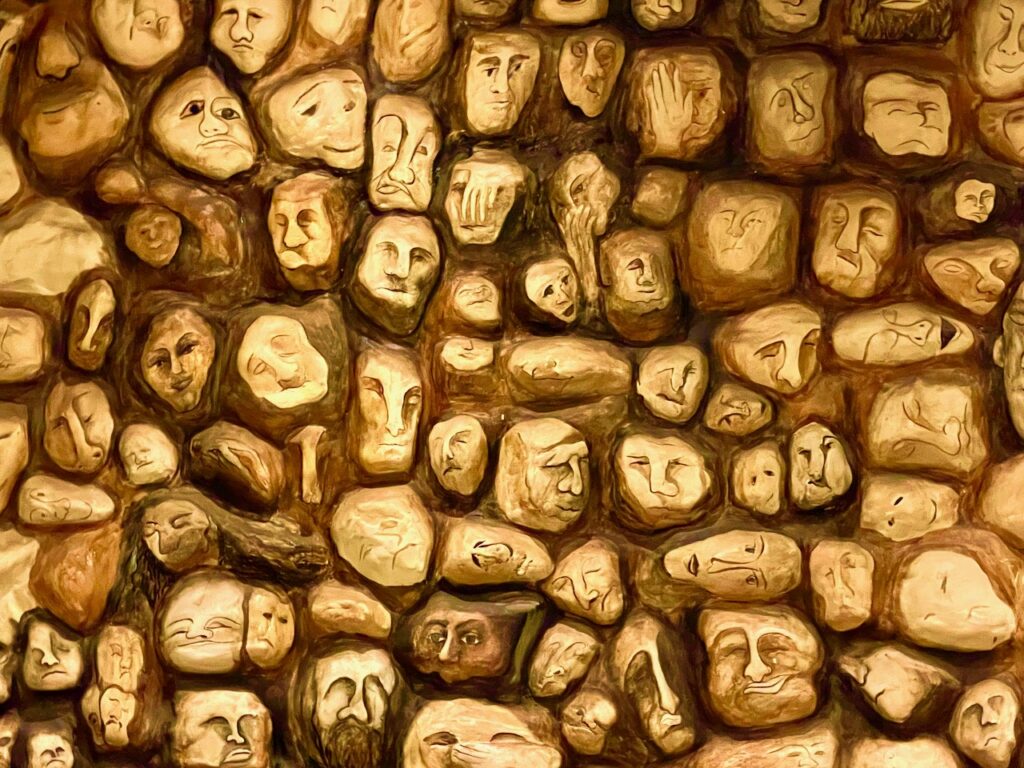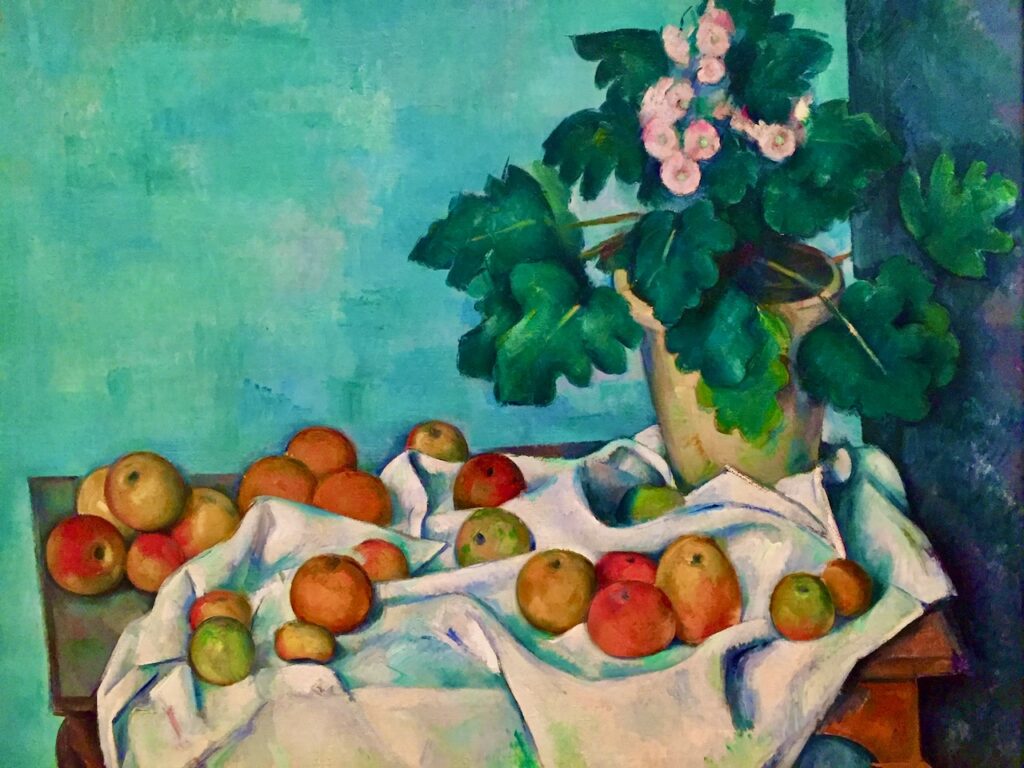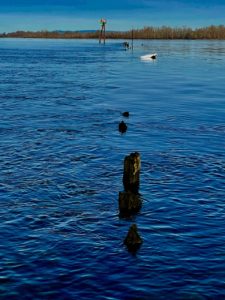
If we have no peace, it is because we have forgotten that we belong to each other.
–Mother Teresa

The title of this post is a quote from an autistic artist named William Scott, who was featured in a PBS Newshour segment on an exhibition of art by disabled artists at SF MOMA.
I think he is exactly right.
The world we see in the news–of conflict, violence, hatred, accusations, recriminations, and revenge–is not genuine. Artists offer us visions of a world that is more real because it reflects the desires, values, and aspirations of our better selves.
You can learn more about William Scott and the Creative Growth group he’s part of here: https://creativegrowth.org/william-scott
I watched some of Sunday’s Super Bowl, including a commercial with a Vince Lombardi figure. Apparently, he said, “It’s not whether you got knocked down, it’s whether you get back up.”
 Sentences seem like little bridges crossing a flooded plain. I step onto one and it feels shaky, incomplete. When I come to the end of it, I face anew the expanse of water with nothing laid over it and no materials. So I wait there, lonely and exposed, until something new comes to me.
Sentences seem like little bridges crossing a flooded plain. I step onto one and it feels shaky, incomplete. When I come to the end of it, I face anew the expanse of water with nothing laid over it and no materials. So I wait there, lonely and exposed, until something new comes to me.
–from an old journal entry

STUDY that which you would like to see in this world—peace, truth, faithfulness, community, economic fairness, good government—and it will have a better chance of coming to be.
On this day of hope, let us all prepare our minds and hearts to work for a better world when we are free again.
Happy Easter to all!

I haven’t added a new post to this site in a long time, and I’m not going to promise to be consistent about adding posts now. But I’ve started working on a new project, centered in the first decades of the 20th century, and some of what I’m reading for it is worth posting about because it relates to what we’re living through in the US today.
I’ll try to say more about what I mean by that in future entries, but for now, just to get started, I’m going to simply post a quote about FDR from a book published in 1937, when his policies were showing some signs of working but the Depression was far from over. The book deals primarily with his policy toward electricity and public utilities in general.
Here’s the quote:
“The President’s thinking goes first to government–democratic government–and after that to economics…In the prodigies of effort he put forth to lead the country out of the bogs of depression he therefore sought, and seeks still, more than what he has termed ‘a purposeless whirring of machinery.’ It is important that every man have a job, that every factory have orders to fill and that business as a whole earn profits. ‘But,’ as he said in his annual message to Congress in January, 1937, ‘government in a democratic nation does not exist solely, or even primarily, for that purpose.’ The factory wheels ‘must carry us in the direction of a greater satisfaction in life for the average man. The deeper purpose of democratic government is to assist as many of its citizens as possible–especially those who need it most–to improve their conditions of life, to retain all personal liberty which does not adversely affect their neighbors, and to pursue the happiness which comes with security and an opportunity for recreation and culture.'”
pp. 292-293, Pyramids of Power, M. L. Ramsay
A man in Germany (Jörg Kowalski) who reads my bimonthly Robert Lax Newsletter (you can sign up at robertlax.com) sent me a note and a book recently. The note told of his trip to Patmos to follow in Lax’s footsteps, and the book contained his poetry, some influenced by Lax’s work.
The back of the poetry book had only the words pictured here on it. I can’t think of a better (or more succinct) definition of being an artist; of why one makes art.
For those who don’t know German, here’s a translation:
now I see
what you don’t see
and that is me